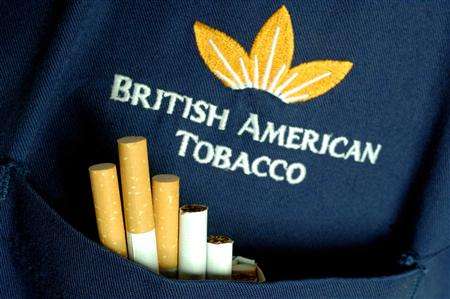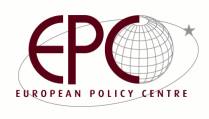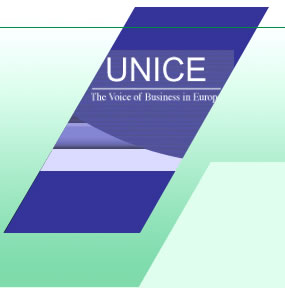Democrat May-June 2011 (Number 123)
How the EU Operates
Working the system
Lobbying by transational corporations

One of the biggest tobacco manufacturers in the world led a group of chemical, food, oil, pharmaceutical and other firms in a successful long-term lobbying campaign to shape EU policy making in their favour, a recent study has shown.
Since 1997, the Commission has been required by EU law to access the economic, social (including health) and environmental consequences of new policy initiatives using a process called an ‘impact assessments’. Because different types of impact assessment examine the likely effect of policies on different aspects of daily life – a health impact assessment, for example focuses on a policy’s effect on health – the choice of impact assessment can lead to different decisions being taken about new policies.
After trawling through some 700 internal documents from British American Tobacco (BAT), whose Irish subsidiary is PJ Carroll, academics from the University of Bath, University of Edinburgh and the London School of Hygiene and Tropical Medicine found evidence that the cigarette giant in the mid-1990’s teamed up with the prominent Brussels think-tank European Policy Centre to create a front group to ensure that the EU framework for evaluating policy options emphasised business interests at the expense of public health.
The ‘policy network’ which included Shell, Zeneca, Tesco, SmithKline, Beecham, Bayer and Unilever first helped to secure a ‘Protocol on the Application of the Principles of Subsidiary and Proportionality’ to the 1997 Amsterdam Treaty that require policy makers to minimise legislative burdens on businesses and after that further lobbying ensured that these treaty changes were translated into the implementation of a business-orientated form of impact assessment within the EU. Both the tobacco industry and the chemical industry have since used the impact assessment to delay and/or weaken EU legislation to protect public health.
One aspect of the findings that may seem hard to believe is that policy makers were not aware of the role of the tobacco industry in this campaigning. David Byrne, Commissioner for Health and Consumer Protection 1999-2004 declared ‘I would be absolutely astonished and would find it very difficult to believe if there was any available which tended to indicate that the European Policy Centre was advocating on behalf of the tobacco industry – that would be shocking’.

As part of the campaign on behalf of its big business clients, the European Policy Centre established the so- called Risk Assessment Forum. Documents summarising the aim of the Forum suggest that its members hoped to promote a new approach to assessing risk that would reduce policymakers’ ability to use the ‘precautionary principle’ as a basis for EU legislation. The precautionary principle states that if an action or policy has a suspected risk of causing harm to the public or to the environment in the absence of scientific consensus that the action or policy is not harmful, the burden of proof that it is not harmful falls on those who advocate taking the action.

In seeking to influence policy BAT and the Forum exploited what the report calls ‘the multiple entry points that characterise EU policy making’. Thus the companies involved acted directly, through various third party organisations and through business organisations such as UNICE (Union of Industrial and Employers’ Confederation of Europe) and the Confederation of British Industry (CBI) as well as IBEC, which was a member of UNICE. UNICE, now known as Business Europe (see below for more information) is the collective body of member states’ employers’ groups (UK’s representative being the CBI and Ireland’s representative being IBEC). BAT was linked to UNICE through its membership of the CBI and to IBEC through its ownership of PJ Carroll which it had acquired in 1995. Also key BAT personnel held positions in broader organisation such as UNICE and were able to direct them in various phases of the campaign. Ireland was identified as a EU Member that was favourable to an impact assessment/cost benefit analysis regime as were the UK, Germany and the Netherlands. Particularly important was the fact that these countries held the EU Presidency during the 1996-1997 period when changes to the EU Treaty culminating in the Treaty of Amsterdam were being worked on.
An extract from the documents is worth quoting and shown below. What is being described is a campaign to have a form of business-friendly impact assessment made mandatory within EU policymaking which is lobbying in practice:
‘In no country in the world are governments required, in practice, to justify their actions through effective cost-benefit analysis, underpinned by rigorous risk assessment. An opportunity to promote such a requirement was identified in the European Union (EU). The Treaty of the EU does not currently contain any general requirement that government authorities carry out a cost-benefit analysis or structured risk assessment before imposing legislation. However, the EU Treaty was renegotiated in June 1997 at the Intergovernmental Conference. British American Tobacco and BAT Industries recognised that a broad coalition of like-minded companies might be able to persuade member states into amending the Treaty, imposing a binding requirement for cost benefit analysis and risk assessment. British American Tobacco and B.A.T Industries assembled a group of companies with a common interest in rigorous cost benefit analysis and risk assessment. Supported by a public affairs consultant (European Policy Centre) and a technical consultancy (Weinberg Group), this ad hoc group of companies used its contacts and influence to promote the cause of cost benefit analysis and risk assessment
…Germany, the UK, Ireland and the Netherlands (who held the EU Presidency) were identified as the key players and lobbying focused on interests in those states … the Commission must now take into account the financial and administrative burden (cost) which has to be minimised and proportionate to the objective (benefit) … Our company has an enormous amount to gain from soundly based regulatory environments. The achievements that have been realised in the EU provide an important stepping stone.’
Ultimately BAT's campaign was successful, helping to secure the treaty amendment it sought, and due to working through a major think-tank and setting up a front group, managed to avoid the perception that big tobacco was behind the policy shift. The study is an important contribution to our understanding of how the EU environment is used by big business to get its way in crucial areas of economic life.
Based on piece in newspaper of Peoples Movement in Ireland.
___________________

Originally BusinessEurope was founded in 1949 with the Conseil des Fédérations Industrielles d'Europe class="text"> (CIFE) by and, within this organisational framework, the Union des Industries des pays de la Communauté européenne, begun by the national industrial federations from the six member states of the European Coal & Steel Community (ECSC), initially to monitor this community. In March 1958 this evolved into the Union des Industries de la Communauté européenne (UNICE), to monitor the political consequences of the European Economic Community (Common Market) created by the Treaty of Rome. The six founder members were joined by Greece. In 2007 UNICE was renamed BuinessEurope (Confederation of European Business). The mission statement – "BUSINESEUROPE plays a crucial role in Europe as the main horizontal business organisation at EU level. Through its 40 member federations, BUSINESSEUROPE represents 20 million companies from 34 countries. Its main task is to ensure that companies' interests are represented and defended vis-à-vis the European institutions with the principal aim of preserving and strengthening corporate competitiveness. BUSINESSEUROPE is active in the European social dialogue to promote the smooth functioning of labour markets." It will be no surprise to learn all 40 members of BusinessEurope have offices for lobbying EU officials and institutions in Brussels. The aims are clear for all to see. Add the European Round Table of Industrialists into the mix and one can see who really runs the EU.
For ERT details see European Road Table and also the later Broadsheet on ERT